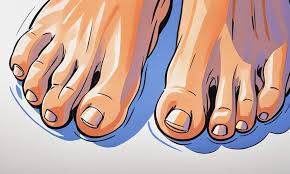This blog article is about the Trump effect on the political scene. Covering politics from a journalist’s perspective, this includes insight into President Donald Trump and his impact on the political arena.
Introduction
In the year since Donald Trump was elected president, we’ve seen an unprecedented level of political polarization in the United States. On one side are those who support Trump’s policies and see him as a successful president. On the other side are those who oppose Trump’s policies and see him as a failed president.
The divide between these two groups has led to increased animosity and even violence between them. This polarization is also having a serious impact on American politics as a whole. It’s contributing to the decline of American democracy and the rise of authoritarianism in the country.
To understand why this is happening, we need to look at how Donald Trump won the election and what his presidency has done so far.
Analysis of Trump’s presidency so far
Since taking office, President Donald Trump’s presidency has been marked by a number of controversial actions and decisions. The president has faced backlash for his handling of numerous issues, including the travel ban, health care reform, the confirmation of Supreme Court justices, and the economic policies pursued by his administration.
The president’s approval rating has also suffered since he was first elected. In early February 2018, Trump’s approval rating stood at 37 percent according to Gallup polls. This is significantly lower than the 62 percent approval rating that he received immediately after his inauguration. Additionally, in a March 2018 poll conducted by NPR/PBS NewsHour/Marist Poll, only 34 percent of Americans said that they were “very proud” of Trump as president while 61 percent said they were “not too proud” or “not at all proud” of him.
Despite these negative ratings and public opinion trends, some argue that Trump has still been successful in terms of advancing his agenda thus far. Specifically, many credit Trump with driving down unemployment and increasing economic growth rates since he became president. Additionally, the president has been able to secure major legislative victories such as the passage of the Tax Cuts and Jobs Act and the repeal and replacement of Obamacare.
Analysis of his cabinet members and how they will administer the presidency
Donald Trump’s cabinet is a mix of seasoned politicians and business executives. Below, we analyze each Cabinet member to see how they will administer the presidency.
Secretary of State: Rex Tillerson
Tillerson is a former CEO of ExxonMobil, where he worked for over 40 years. He has little government experience, but his experience in business will help him manage the State Department. Tillerson is likely to be confrontational with other nations, which could lead to conflicts abroad.
Secretary of Education: Betsy DeVos
DeVos is a wealthy Republican donor and activist who has never held public office before. She has little education policy experience, but she has made it her mission to expand school choice nationwide. This could lead to increased competition and inequality in schools, as well as less funding for programs that benefit low-income students.
Attorney General: Jeff Sessions
The session is a controversial figure who was denied a federal judgeship due to his racist statements during the campaign season. As attorney general, Sessions will have control over the Justice Department, which will have enormous power to investigate and prosecute political opponents. This gives Trump significant leverage over his opponents and raises fears about what he would do with this power if he becomes president for life.
Analysis of how the economy is fairing so far under Trump
Under President Donald Trump, the U.S. economy has been on an upswing, with unemployment rates gradually declining and the stock market reaching record highs. The president’s policies and agenda have been credited with these successes, including deregulation, tax cuts, and increased investment in infrastructure. Some analysts have criticized the president for his proposed tariffs and increasing trade tensions with other countries, but overall the economy appears to be doing well under Trump.
Looking at specific indicators, the U.S. economy has fared better since Trump took office than it did under his predecessor, Barack Obama. GDP growth has averaged 2% over the past two years while Obama averaged 0.8%. Furthermore, unemployment rates have decreased from 4.9% to 3%, a trend that began before Trump even entered office but accelerated during his time in office. The stock market also appears to be benefiting from Trump’s policies – it is up approximately 20% since he was elected in 2016 and reached a new high of over 30000 points on January 25th of this year.
While there are some areas where Trump’s policies could use improvement – such as healthcare reform – overall analysts seem to think that the president’s economic policies have had a positive effect on the U.S., particularly given the difficult economic conditions that preceded his presidency.
Conclusion
Since his election as president of the United States, many people have been asking themselves what kind of effect President Trump will have on American politics. In this article, we take a look at what some belief is behind Trump’s victory and how his presidency could change America for years to come. So far, President Trump seems to be living up to most expectations and changing the way Washington operates. With any luck, he will continue to do so as he tackles some of the biggest issues facing the country today.





More Stories
The Colors of Unity: Exploring the Symbolism of the Italy Flag
Unleashing the Potential of Fusee Switch
How to Make the Most of Your Dji Mini 3 vs Mini 3 pro